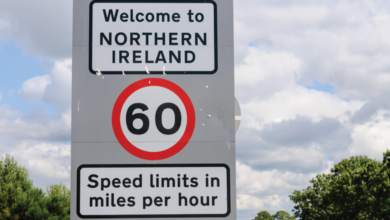Summer Economic Statement 2021

In mid-July, Minister for Finance Paschal Donohoe TD and Minister for Public Expenditure and Reform, Michael McGrath TD published the Summer Economic Statement (SES), establishing the Government’s medium-term budgetary strategy. The SES also delineates the fiscal parameters framing the Budget 2022 discussions.
Annual voted expenditure has increased from a pre-pandemic level of €70 billion in Budget 2020 to €90 billion currently. According to Minister Donohoe, an expansionary budget policy amid an economic rebound is unsustainable. However, aside from pandemic fiscal supports, several significant spending pressures remain, most notably in housing and healthcare.
At the National Economic Dialogue, he warned: “We cannot continue to run a strongly expansionary budgetary policy while growth accelerates. To do so, would imply a shift from the pursuit of counter-cyclical policy during the crisis to a massively pro-cyclical stance during the recovery, which would undermine the sustainability of our public finances.
“To put this in context, it is worth stressing that, by the end of this year, Irish public sector debt will stand at close to a quarter of a trillion euro.” This is among the highest in the developed world. While relatively low debt service costs can sustain the economy, this is reliant upon a slowdown and ultimate arrest of debt accumulation.
Recovery
Amid the ongoing vaccination programme and easing of public health restrictions, consumer expenditure and job postings data signal strong economic recovery. Likewise, modified domestic demand (MDD) is rallying and is expected to grow at 2.5 per cent and 7.5 per cent, respectively, in 2021 and 2022 (as per the Stability Programme Update projections). This is, however, dependent on several factors, including the stabilisation of household saving/spending decisions. Revised MDD projections will be published alongside Budget 2022.
Continued resilience of tax receipts has now meant that GDP is projected to grow by 8.75 per cent in 2021 and revenues are anticipated to increase by €1.6 billion relative to earlier projections within the Stability Programme Update. This is a result of strong growth in exports from a limited number of mainly foreign-owned companies in ICT and pharmaceuticals, alongside firms involved in contract manufacturing.
Focus now turns towards a realignment of the fiscal deficit and “rebuilding the government balance sheet”. Therefore, consistent with its countercyclical budgetary policy, government is seeking to circumvent overheating in the economy.
While overall, the SES was published at a time of “very strong economic recovery”, government is cognisant of asymmetry in the domestic recovery. ‘Contact-intensive’ sectors remain at “the epicentre of the economic fall-out from the pandemic”. It is hoped that the success of the vaccination programme will facilitate further easing in restrictions and a rebound in these sectors.
Post-pandemic, following the withdrawal of supports, “the fog will begin to lift on which firms and sectors are viable in the ‘new normal’”. In sectors which are no longer viable, workers must be reskilled for migration into those which are viable.
Extraordinary expenditure
Budgetary policy has been crucial to protecting private sector income during the pandemic. Over two years (2020 and 2021), government has made available over €38 billion (17.8 per cent of GNI*) in direct expenditure measures to support households and businesses, alongside the €5 billion Economic Recovery Plan. While asserting that this support was “clearly appropriate”, Ireland’s budgetary deficit is on course to be one of the highest in Europe in 2021 and 2022.
Currently, the public finances are unsustainable in that public spending greatly exceeds the domestic tax base. Government maintains: “We cannot keep financing large deficits. With a public debt-income ratio that is now amongst the highest in the developed world, borrowing beyond the short-term increases our vulnerability and depresses the living standards of future generations.”
Consequently, the SES commits to “returning the public finances to a sustainable position so that Ireland does not become a fiscal outlier”. Phasing out fiscal supports to avoid a cliff edge requires that the Employee Wage Subsidy Scheme, the Pandemic Unemployment Payment and the Covid Restrictions Support Scheme be extended. As a result, a deficit of €20.3 billion (9.4 per cent of GNI*) is projected for 2021.
Budgetary policy
The Government’s medium-term budgetary strategy is to re-establish the public finances on a sustainable trajectory through the stabilisation of, and slight reduction in, the debt-income ratio. This will be achieved through close alignment of revenue and expenditure, alongside deficit reduction in tandem with the economic cycle.
In the immediate-term, government is fixing core expenditure (non-Covid) at €80.1 billion (+5.5 per cent), matching the estimated growth trend rate of the economy and allowing for inflation. Targeted temporary supports totalling €8 billion will continue in 2022. A total expenditure ceiling for 2022 of €88.2 billion is consistent with a projected deficit of 6.2 per cent of GNI* for 2022. If the reality belies the projections, automatic stabilisers will operate, and the expenditure ceiling will remain fixed.
In the medium-term, annual expenditure growth between now and mid-decade will be set at 5 per cent per annum, as per the estimate trend growth rate of the economy. The medium-term strategy will accommodate revised capital expenditure ceilings for 2021 to 2030, set to be published upon completion of the NDP review. Gross voted capital spending will increase to €13.6 billion (almost 5 per cent of GNI*) by 2025. It is intended that a headline deficit of €7.4 billion (2.8 per cent of GNI*) can be met by 2025.
Such an incremental reduction is a reflection of the Government’s commitment to capital expenditure, particularly in delivering National Development Plan objectives, as well as Programme for Government ambitions. From 2023 onwards, government is committed to limit borrowing only to finance capital expenditure.
Emphasising the Covid-19 experience, balanced budgets, the Government concludes, “provide greater capacity to respond in difficult times”. Overall, the central objective of the SES is to stabilise and incrementally reduce the debt-income ratio through close alignment between revenue and expenditure. While fiscal policy will support demand, budgetary policy will support supply and to deliver this, government will fix expenditure ceilings.
Upon the publication of the SES, Minister Donohoe described it as a “credible medium-term strategy for returning the public finances to a sustainable position”, balanced against the retention of temporary pandemic supports for households and businesses.
“There is increasing cause for optimism as our vaccination programme continues at pace and society reopens, with indications that a strong economic recovery is taking hold. As we emerge from the pandemic, the budgetary strategy published today will guide fiscal policy over the medium-term, responsibly phasing out the range of temporary support schemes to allow resources to be directed at key national priorities.
“By 2023, we will borrow only for capital investment, which is being ramped up to provide for, among other things, significant additions to the housing stock. All-in-all, this fiscal framework is one that stabilises our debt ratio, gradually reduces the budgetary deficit, supports households and firms and invests in our future,” he said.
Meanwhile, Minister for Public Expenditure and Reform, Michael McGrath TD outlined: “Under the SES, core expenditure will grow by just over 5 per cent on average over the period to 2025 – an amount which is prudent, sustainable and consistent with our plan to reduce the deficit in an orderly manner. Within this framework, we have set out our intention to make a massive investment in the future wellbeing of our country and the lives of our citizens, through further enhancements to the public capital programme. Over the next four years, we will spend almost €50 billion on vital infrastructure.
“This sustained and ambitious investment programme will ensure that we tackle the housing crisis head on, building thousands of social homes and take immediate action to improve affordability for first time buyers and renters. The revised National Development Plan will set out critical investment plans to address with the most important challenges and opportunities facing us as a nation, including climate action, transport, housing, education, balanced regional development, healthcare and other infrastructure.”





